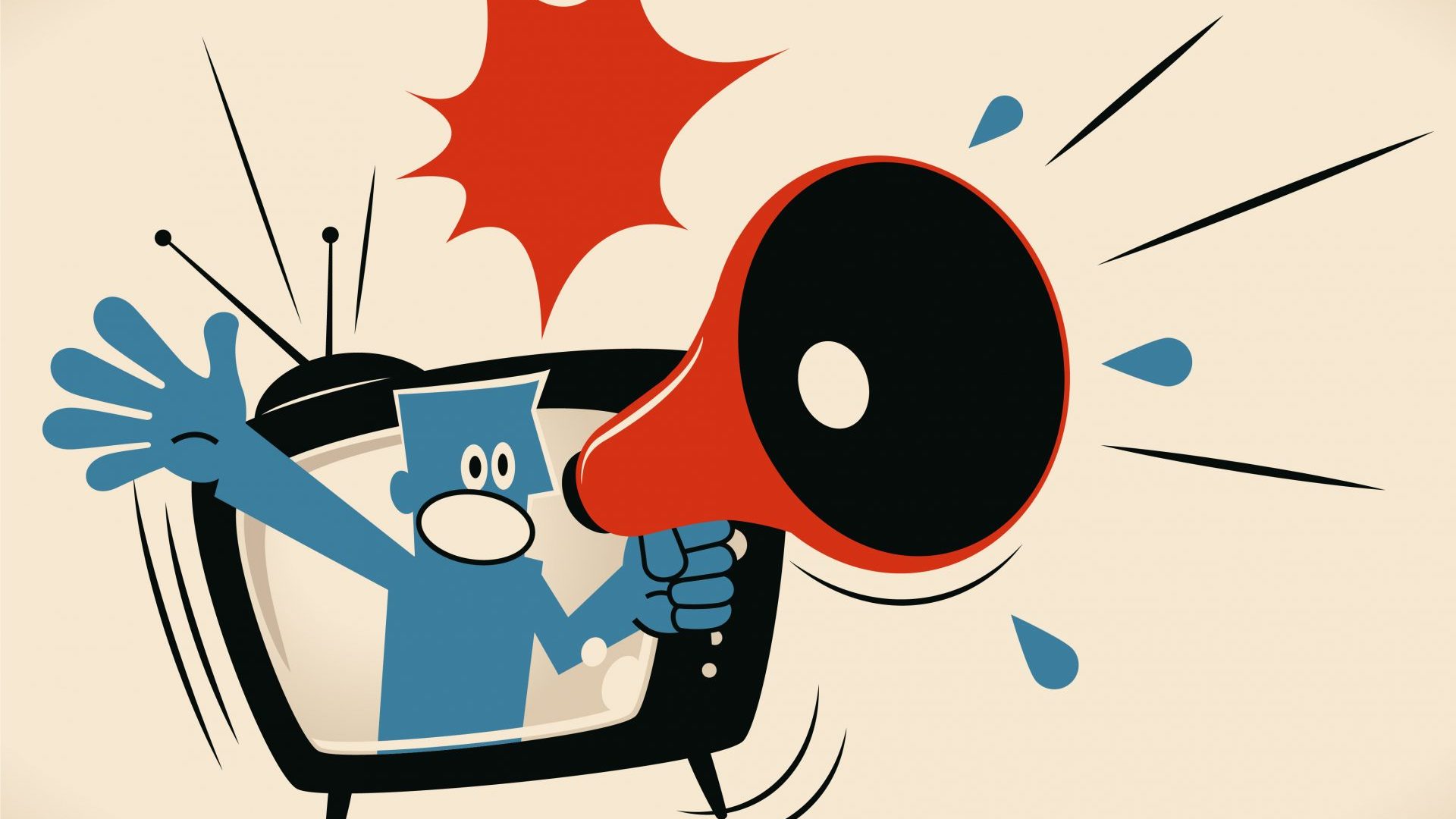Political interviews are ubiquitous these days. Switch on a TV or radio from early in the morning until late at night and there are interviews on a range of outlets to sate the appetite of the most ardent political junkie.
They come and go so fast that the exchanges become a blur and are rarely scrutinised. Yet occasionally interviews merit further scrutiny for what they tell us about the assumptions of interviewers and the organisations they represent.
At the BBC, a dangerous new tendency has come into play. Some interviewers claim to speak on behalf of their viewers and listeners, transforming the dynamic of an interview. The pathetic interviewee is in effect being challenged by the personification of an entire audience.
There was Jon Kay on BBC Breakfast just the other day, grilling Wes Streeting. “Our viewers are worried about the use of physician associates,” he told the health secretary. “So, how do you address our viewers’ concerns?”
Laura Kuenssberg may have been the originator of this trend on her Sunday morning programme on BBC One. The last time she had Streeting in the studio, at the end of last month, she also claimed to know what those watching at home were thinking – even in real time.
“Our viewers still want to know when you’re going to come forward with the big reforms that you’ve promised on social care,” she said. When Streeting tried an answer, she continued: “Many people watching at home believe very strongly you haven’t got a hope of properly reforming the NHS until you reform social care.”
In interviews, Kuennsberg often cites “our viewers” when posing a question, as if they all share the same concern. Sometimes she qualifies this by citing “some of our viewers”. Even so, how does she know how they all feel on any given issue?
I understand the premise and can hear the conversations with her team, all under pressure from naive senior managers to “bring politics closer to the people… make politics more accessible”, a mission that GB News claimed to espouse at its launch. In response to such pressure, Kuenssberg punctuates interviews with viewers’ emails.
But who are these particular viewers – Labour votes or Conservative voters, or supporters of some other party? Party activists, eager to make trouble for the other side?
Young or old? Rich or poor? We will never know. Even without an email to hand, Kuenssberg constantly cites her viewers. “I want to let you know how angry some of our viewers have been over this last week,” she told Angela Rayner in an interview in late September, before reading out three critical messages.
On the Sunday before the Budget, her opening question to the education secretary, Bridget Phillipson was: “We know your department is going to get more money but to some of our viewers it might sound that you’re going back to traditional Labour, tax more, borrow more, spend more….”
The phrase raises many questions. When Kuenssberg cites “some of our viewers” which ones is she referring to? What about the “rest of the viewers”? What are they thinking?
In the case of her Philipsson interview, Kuennsberg implied that some of her viewers might see the Budget as a return to “traditional Labour”, whatever that vaguely pejorative term means. Perhaps they do. Perhaps they do not. How does she know?
The use of the word “but” followed by the old tax bombshell motif of “tax, spend, borrow” suggests that she assumed that “some of her viewers” are far from thrilled at this return to ‘traditional Labour’, although she omitted to mention that “some viewers” might be relieved that money is being spent on schools and the NHS.
Of course, some will approve and some will not. This is democratic politics. If her audience all thought the same they would be living in North Korea.
Emma Barnett is another who has become the audience’s representative on the Today programme. She often cites “our listeners” and then gets angry on their behalf.
In a post-Budget interview with Pat McFadden, she asked the Cabinet Office minister: “Can you understand why you have alienated and annoyed some people…?”
The problem with the assumption behind this question is that in a democracy “some people” are bound to be alienated and annoyed. Does Barnett expect that “all people” are content with what the government is doing at all times?
Unsurprisingly McFadden did not concur that the government had “alienated” people. To have done so would have delivered the headline ‘Minister Admits His Government Has Alienated the People”, not the ideal message on the eve of a Budget.
McFadden’s refusal to make that admission triggered a direct assertion from Barnett: “You’re not being honest…” Is this the BBC’s impartial view on McFadden, that he is “dishonest”?
The interview had become a lazy one about telling the “truth”, an elusive term when any minister navigates the wild politics of tax and spend in the UK. At which point Barnett chose to speak on behalf of the entire audience, one that is apparently in complete consensus.
“This is really crucial to our listeners… They want to know why you said they would not pay higher taxes… they want to know who working people are who are not defined as working people…”
Did all “our listeners” want to know this? Some might have hoped that Rachel Reeves would have reneged on pre-election tax pledges more overtly, perhaps reversing the national insurance cuts for employees.
Indeed, I am one of those listeners. Some might have been relieved to pay higher taxes in the hope that public services might improve.
Some will be furious that they are “working people” and paying more. There has never been a tax-raising budget that has not alienated some of “our listeners”.
After which we got the trick “yes or no” question to McFadden. She asked him: “Do you accept you’ve annoyed some people who are going to pay more… yes or no…?”
What does this question seek to elicit beyond another simplistic headline for the BBC and the Tory papers? Every tax-raising budget has annoyed some people.
A lot of people want decent public services and lower taxes. This is not possible. But Barnett persisted… “What do you say to those people you’ve annoyed… they want to be motivated by leadership… they don’t want to be isolated and annoyed…” Again, how does she know? Has she spoken to all “our listeners”?
On the Sunday after the Budget, Kuenssberg was at her most evangelical in speaking for the viewers. While interviewing Rachel Reeves she declared early on that “our viewers… some of them… feel they were misled.” No doubt some do feel that, but which ones?
She went on: “Some of our viewers feel really cross about this,” at which point she read an email from a single viewer who was indeed “really cross”.
But who was it? An opinion is only interesting when we know a little about the person expressing it. Otherwise it is the most shallow of vox pops, a modern day Monty Python sketch “I have an email from Bert Thung. He writes that he is ‘really cross’.”
In claiming to speak for their audiences, presenters indulge in a form of arrogant populism. They believe they know what the people think and will speak for them when they face politicians who are always letting down “our viewers and listeners”.
In reality what happens is that they read the morning papers with their fuming headlines about taxes, spending and borrowing, and a few emails from the unrepresentative types who write to programmes. These front pages are on their minds as they enter the studio and those papers become “our viewers… our listeners”.
Few buy newspapers. The Conservative Party that has the support of so many papers and ubiquitous pundits on BBC programmes was slaughtered at the last election.
Yet the influence of those papers is reflected in these interviews and others. With few other external forces entering the cocooned world of New Broadcasting House, the papers can come to speak for “the audience”.
There is a separate danger. In the questions referring to “our audience” there is an implicit assumption that there is a place where all politicians should be, that ideological differences are a form of dishonesty because an entire audience is of one point of view, seeking only a “truth”.
Democratic politics should be much deeper than that. But some presenters know their senior managers hail their “tough questioning” and connection with “the people” rather than being part of the mythical “metropolitan elite”. It is all sinister nonsense reflecting a wider lack of intelligent mission in news and current affairs at the BBC.
Of the recent BBC leaders, only John Birt came close to defining a smart role for impartial broadcasters, when he spoke of the need to address the bias against understanding. In spite of the valiant efforts of a few brilliant presenters and editors it seems that inadvertently the BBC’s main mission is to reinforce the bias against understanding.
As a result, an institution we should cherish is almost impossible to support any longer. It needs fresh leadership urgently.
Steve Richards presents the Rock N Roll Politics podcast. His next live show is at Kings Place on November 27










